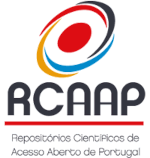Evaluation of the Ability to Sing Easily: Adaptation and validation to the European Portuguese language
DOI:
https://doi.org/10.62741/ahrj.v1i2.6Abstract
Purpose: To adapt and validate the Evaluation of the Ability to Sing Easily (EASE) to the European Portuguese language; to compare scores according to singing style, voice use, and demography variables; to conduct psychometric tests.
Methods: A five-step approach was adopted to ensure the cross-cultural adaptation of the instrument including forward translation, backward translation, committee opinions, and pilot testing.
Results: The pilot test was conducted with ten singers, which determined the reformulation of seven items, thereby, allowing the formulation of the final form. The EASE-PT was completed by 120 singers, age range 18–72 and 58.3% were female. Median results were significantly higher for Choir singers except for one item where the median was significantly higher for Fado singers. High internal consistency was obtained, Cronbach’s alpha > 0.80 for EASE scale for both Fado and Choir singers, and its sub scales were close to or exceeded 0.80.
Conclusion: EASE-PT may be considered a reliable tool to apply in the case of Portuguese singers as the outcome supports the ability of EASE-PT to measure the same constructs in a way similar to that of the original version.
Downloads
Published
Issue
Section
License
Copyright of published papers is assigned to the Journal, but all content is licensed under the terms of Creative Commons Non-comercial 4.0 International License. Thus users are allowed to read, download, copy, distribute, print, search, or link to the full texts of the articles, or use them for any other lawful purpose, without asking prior permission from the publisher or the author. This is in accordance with the BOAI definition of open access.














